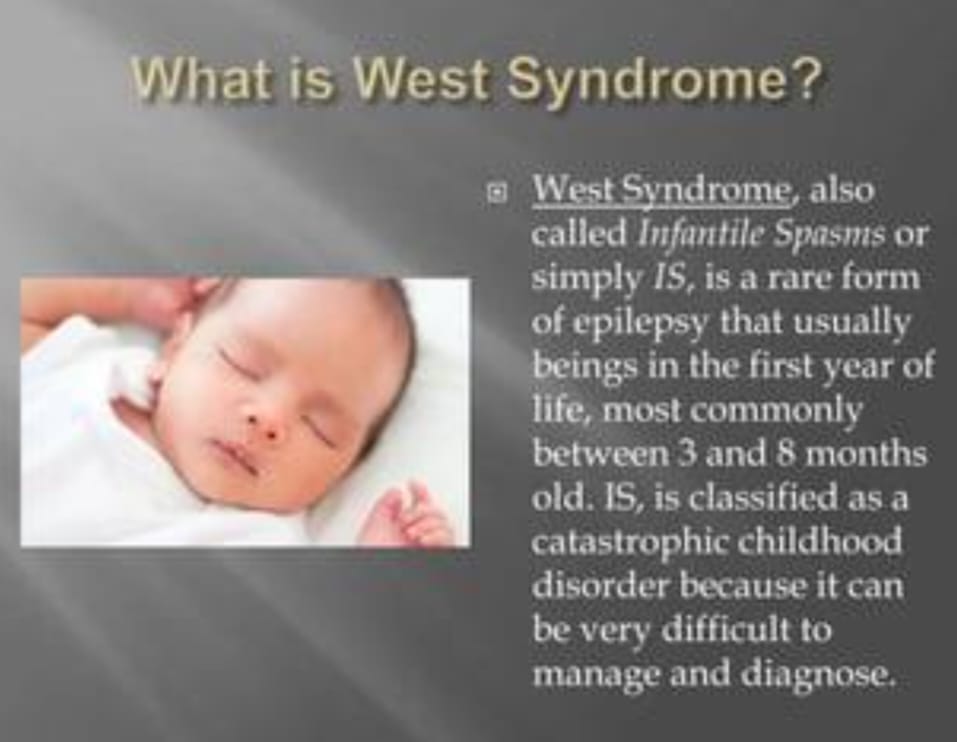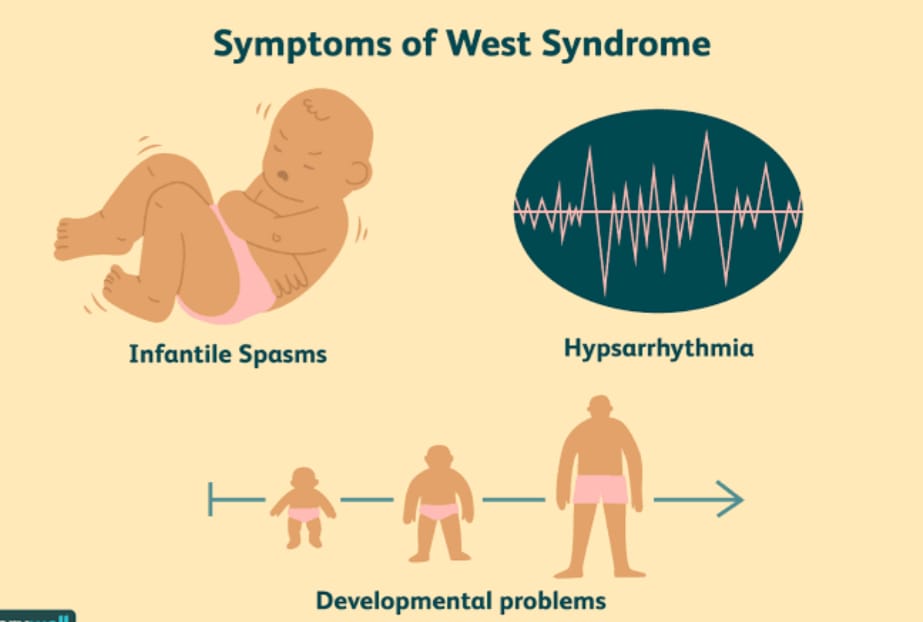West Syndrome
West syndrome also called infantile spasm, is a rare form of epilepsy that usually begins in the first year of life.
West syndrome is a constellation of symptoms characterized by epileptic spasms, abnormal brain wave patterns and intellectual disabilities.
In 9 out of 10 children with the condition, infantile spasms happen in the first year of life, typically between 3 and 8 months of age. To begin with, the spasms are usually infrequent and do not happen in clusters. Therefore it is quite common for the diagnosis to be made quite late.
The parents may at first be told their infant has colic because of the pattern of the attacks and the cry that a child gives during or after an attack.
The typical movement in a spasm is of a sudden flexion (bending forward) in a tonic (stiffening) fashion of the body, arms and legs. Sometimes, the episodes are different, with the arms and legs being flung outwards (these are called ‘extensor’ spasms). Sometimes the spasms may involve a flexor movement followed one or two seconds later by an extensor movement. Usually, they affect both sides of the body equally.
Typically, each episode lasts just 1 or 2 seconds after which there is a pause for between five and ten seconds which is then followed by a further spasm. Although spasms may only happen singly, it is far more usual for infantile spasms to happen in ‘runs’ or ‘clusters’. There may be 5 or up to 20 or more spasms in a ‘cluster’.
Homeopathy works out individualization here and treats person as a whole to root out the disease. Homeopathy can treat west syndrome very well by simply riding on the waves of the brain and mind of the person.
Homeopathic medicine is strongly recommended

